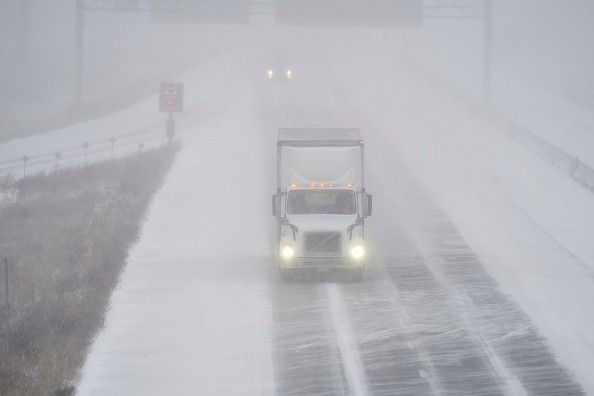The latest weather forecast warned that continuous snowfall and heavy snow would unload in portions of Canada, B.C Interior and Central Alberta this week.
Motorists planning to travel should look into the weather forecasts to avoid the inconvenience of road delays and slower commutes.
Canada is known for extreme weather events and colder weather. However, Canadians should ensure they have layered winter clothes to prevent hypothermia and frostbite.
In the previous news, the polar vortex helped to unleash extreme cold and heavy snow in Canada, including in the United Kingdom.
Heavy snow and travel disruptions
According to The Weather Network's latest forecast (February 1, 2023), the weather report showed snowfall and heavy snow in B.C. Interior and Central Alberta would result in travel concerns for many motorists and commuters.
The forecast warned commuters and motorists to be extra careful in driving while on the roads, especially on untreated pavement and roadways.
Since Wednesday, the forecast noted heavy snow in the affected areas. The weather report emphasized that the snowfall would persist until this week.
Due to the challenging weather condition, homeowners should consider observing people vulnerable to prolonged colds, especially older adults.
In the weather outlook on Thursday, the weather report showed that additional snowfall is expected on Thursday.
- Snowfall is forecast in Williams Lake, Revelstoke, Prince George, Hinton, Grande Prairie, Fort St. John, Whitecourt, Edmonton and Red Deer.
- The forecast said that winter warnings are in effect in Central Alberta, British Columbia, and Canada.
- In addition, the report said that heavy snow would unload in Grande Prairie, affecting motorists on Highways 16, 40 and 42.
- Residents and motorists in Eastern Prairies could expect milder freezing conditions.
Cold Snap

On the other hand, CBC News in Canada reported that a cold snap unleashed in Ottawa. Starting Wednesday, the forecast noted the drop in temperatures that could become difficult for vulnerable sectors.
A frostbite advisory has been issued to alert residents to be cautious under the frigid weather conditions in the country.
Also Read : New York Experiences More Rain; Less Snow Expected This Week; Chances of Snow To Dump in Washington D.C
In addition, the Environment and Climate Change Canada (ECCC) explained that motorists should avoid non-essential travel this week.
The most common impacts during heavy snow are reduced visibility and wet and slippery roads. Ice conditions could add more problems for commuters.
Facts about the weather in Canada
Canada is one of the coldest countries. Many regions are known for extreme and challenging weather events.
- According to Canadian Geographic, Canada recorded the lowest temperature that gripped the country on February 3, 1947, in Snag, Yukon, reaching 63ºC.
- The report added that the greatest snowfall recorded in a single day was on February 11, 1999.
- Did you know that the Grand Banks in Newfoundland is known for being the world's foggiest place.
- Being a big country, Canada has different climate conditions. The most common is a humid continental climate.
Ultimately, the weather conditions in Canada this week would be problematic for commuters. It is best to stay updated with the weather to avoid road hassle. Stay updated with Nature World News' weather updates.
Related Article : Latest Weather Forecast: Dangerous, Severe Weather Conditions to Unleash in Southern U.S This Week, Forecast Warns
For more similar, don't forget to follow Nature World News.
© 2026 NatureWorldNews.com All rights reserved. Do not reproduce without permission.





